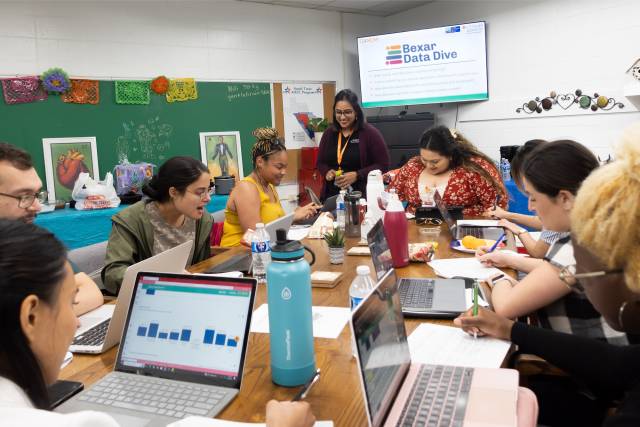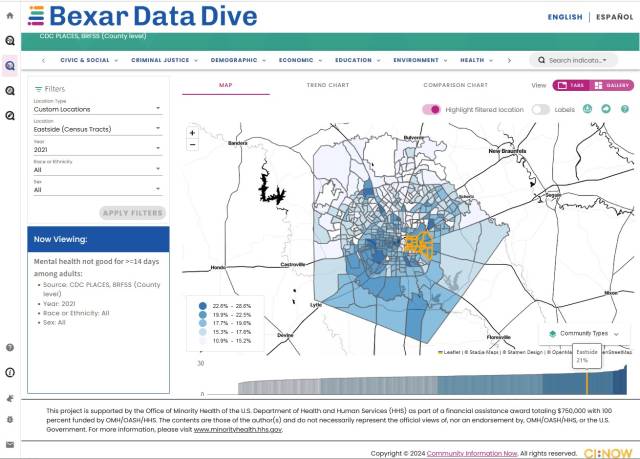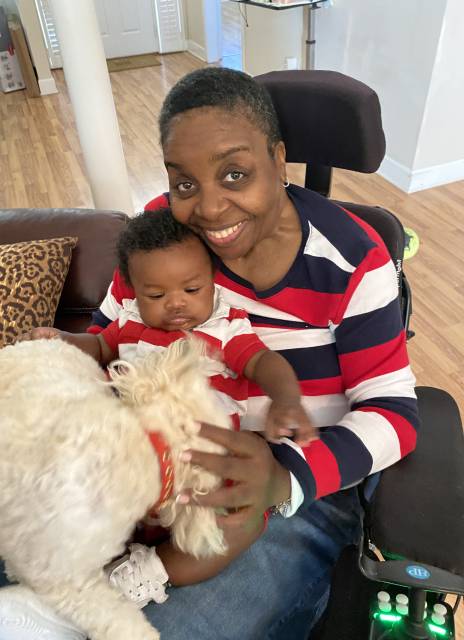You are here
Harnessing the Power of Local Data through PLACES
Public health data can tell many stories, painting a picture of community health by highlighting the number of community members who have high cholesterol or diabetes, exercise rates, the availability of green space and access to local grocery stores.
While valuable, that picture doesn’t tell the full story of community well-being. To tell the right stories, communities must be able to provide input into public health data and lead the development of their own health narrative. And for public health data to be truly complete, it must be contextually relevant to ensure the story is a true reflection of the community’s needs and priorities.
PLACES (Population Level Analysis and Community Estimates) is a data platform providing model-based, population-level analysis and community estimates of health measures for all counties, and most places, census tracts and ZIP Code Tabulation Areas (ZCTA) across the United States—the first tool to provide nationwide data at multiple local geographic levels.
PLACES continually improves the availability and usability of measures related to health and well-being. A collaboration between CDC, the Robert Wood Johnson Foundation and the CDC Foundation, PLACES primarily highlights chronic disease measures grouped into six categories: health outcomes, prevention, health risk behaviors and health status. Disability and social determinants of health categories were added in the 2023 release.
The new categories were added to support community health-related data needs. To be healthy, all people must have opportunities to take part in meaningful daily activities that add to their growth, development, fulfillment and community contribution. The new disability and social determinants of health indicators offer communities new data to better understand health and well-being and help ensure everyone has the opportunity to live their healthiest life.
Since both data and community insights are necessary to create an accurate narrative, it is critical that community members and organizations can access local data. Community-based organizations use PLACES data in many ways to make local data more accessible and contextualized for their communities. To support communities in creating their own health narratives, PLACES aims to make health data more readily available at various geographic levels.
Bexar Data Dive, a local data dashboard created by Community Information Now (CINow) in San Antonio, Texas, brings together more than 105 indicators from multiple publicly-available national and state data sources—including PLACES—into one platform.
CINow chose the initial set of indicators for Bexar Data Dive based on community input, their organization’s historical experience with community data and the quality of the available data. PLACES is a critical source for the dashboard, providing health indicators for small geographies, data that is otherwise unavailable through other sources. At the same time, Data Dive extends the usefulness of PLACES data; for example, the user can generate an aggregate estimate of a PLACES measure for a custom-created geographic area based on either census tracts or ZCTAs.
“It’s important to be transparent with what the data is and accept its limitations—both when creating the data tools leveraging local and national data and when communicating the data to the larger community,” says Laura McKieran, Executive Director, CINow.
Acknowledging limitations allows data users to understand potential biases and gaps and sets realistic expectations about insights derived from the data. CINow also provides data literacy training to help communities use the data to pursue their own priority actions.
Other organizations use PLACES to address specific population needs. For instance, United Spinal Association advocates for disability rights and empowers the nation’s 5.5 million wheelchair users with resources for all types of information including employment, affordable housing, education and health care. PLACES data bolsters their Resource Center by identifying the prevalence of people with disability in rural and other areas that have been underserved, to curate diverse resources tailored to meet the communities’ specific needs. By leveraging PLACES data on disability status, United Spinal Association strives to ensure all their members have access to the support and resources they need to thrive.
United Spinal Association encourages people to create bidirectional communication with data platform owners to ensure the data your community needs are being collected. “Always provide input back to the owner of the data platform to improve the functionality and the data that is being collected, especially if there is something not being collected that would be helpful for your work and your community,” says Matthew Castelluccio, Vice President of Community Support, United Spinal Association.
Data is as varied as the health of our communities. Combining data with community voices helps ensure the resulting stories reflect the unique experiences of their communities. Continued investment in local health and well-being data can support community members and organizations to advocate for change, drive innovation and build resilience within their communities.
Improving Engagement in Community Level Data Collection is a partnership with the CDC Foundation, National Alliance against Disparities in Patient Health (NADPH) and five data coalitions: the Black Equity Coalition and University of Pittsburgh’s Center for Social and Urban Research, Community Information Now (CI:Now), Data Driven Detroit (D3), DataWorks NC and Neighborhood Nexus. Promising Actions for Community-Driven Survey Data Systems provides suggestions for community-centric approaches for surveillance systems and will be released in June 2024. This program is made possible through funding from the Robert Wood Johnson Foundation. The views expressed here do not necessarily reflect the views of the Robert Wood Johnson Foundation.



